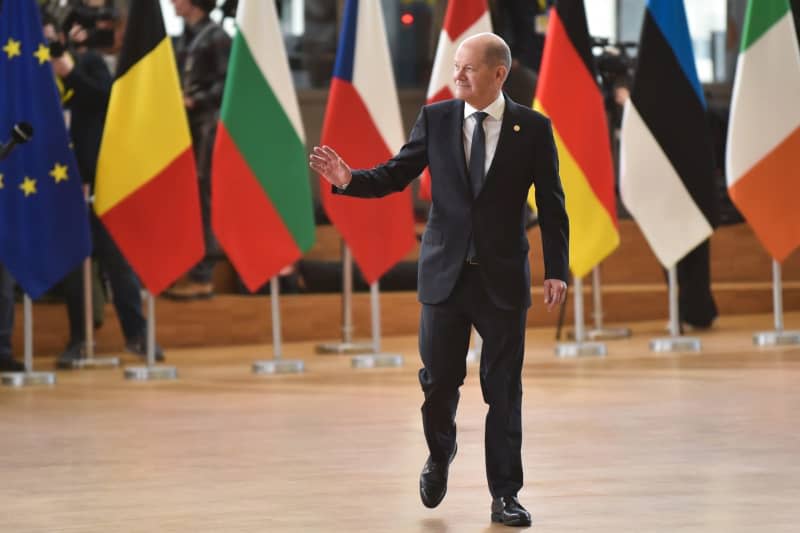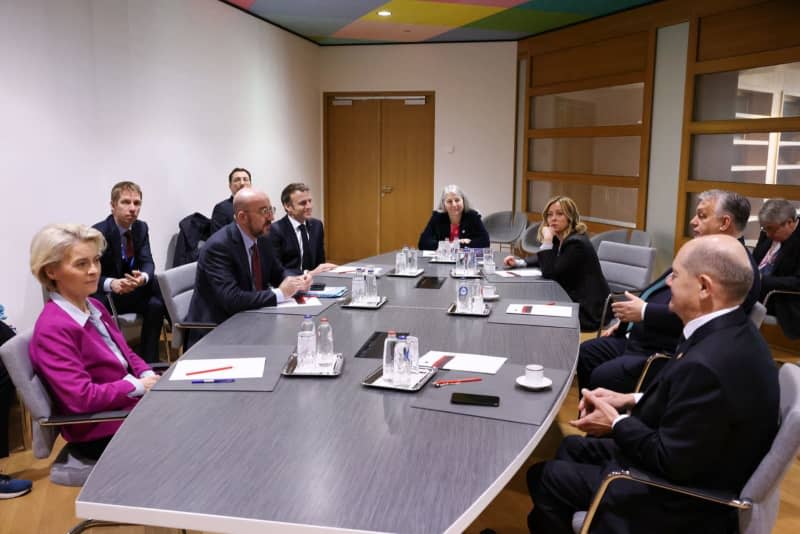[ad_1]
The European Union managed to put on a united front on Thursday as all 27 member states agreed €50 billion ($54 billion) in aid for Ukraine, at a summit convened especially to tackle a previous Hungarian veto.
“This locks in steadfast, long-term, predictable funding for Ukraine,” European Council President Charles Michel posted on X, formerly Twitter.
Ukrainian President Volodymyr Zelensky welcomed the unanimous decision by EU leaders as proof of “strong EU unity” after Hungary dropped its entrenched opposition to the aid package.
The money is intended to bolster the warn-torn country’s public finances, including paying pensions and salaries.
Hungarian Prime Minister Viktor Orbán had vetoed a previous proposal on the funding, and criticized it as “anti-democratic” as there would be no built-in review of the arrangements.
According to the published text of the agreement EU leaders “will hold a debate each year” on the implementation of the funds for Ukraine until 2027.
The agreement details that “if needed, in two years” EU countries can direct the European Commission to propose a review of the aid for Ukraine.
Ukrainian Foreign Minister Dmytro Kuleba said the EU decision was “a step of historic proportions.”
“It demonstrates that any talk about alleged ‘fatigue’ or ‘waning support’ is simply false,” he wrote on social media.
Orbán’s statements before the summit had not indicated that a speedy resolution was the likely outcome.
“We will stand up for the voice of the people! Even if the bureaucrats in Brussels blackmail us,” he posted on X the evening before.
The Hungarian leader has previously linked the EU budget negotiations with the disbursement of EU funds for his country, which had been frozen over corruption and abuse of power allegations.
European Commission President Ursula von der Leyen flatly denied in a press conference that any more frozen EU funds had been released to Hungary. “So the answer to your question is a simple no,” she said.
The Hungarian leader still touted the EU leaders’ agreement to annually review the Ukraine aid as a victory. “Mission accomplished,” he wrote.
Zsuzsanna Vegh, an associate researcher at the European Council on Foreign Relations (ECFR), a think tank, said the united decision avoids the “cumbersome process” of negotiating an alternative aid package with individual national parliaments in the EU.
The €50 billion sum is part of the EU’s overall budget review. Decisions on the bloc’s budget require unanimity from member states, meaning Hungary’s dissent had caused major friction with fellow EU countries in the lead-up to the gathering.
As he entered the talks, Polish Prime Minister Donald Tusk strongly criticized tactics used by Orbán.
“I mean, there’s no problem with so called ‘Ukraine fatigue.’ For sure, we have ‘Orbán fatigue’ now here in Brussels,” he said. “I can’t understand, I can’t accept this very strange and very egoistic game of Viktor Orbán.”
Relief was palpable among EU leaders that the suprise agreement was struck. “Sometimes it requires a lot of effort” to stay united, Michel admitted in a press conference.
“Sometimes progress is a snail,” German Chanceloor Olaf Scholz remarked in a separate press conference.


[ad_2]
#clinches #deal #Ukraine #aid #Orbán #fatigue
